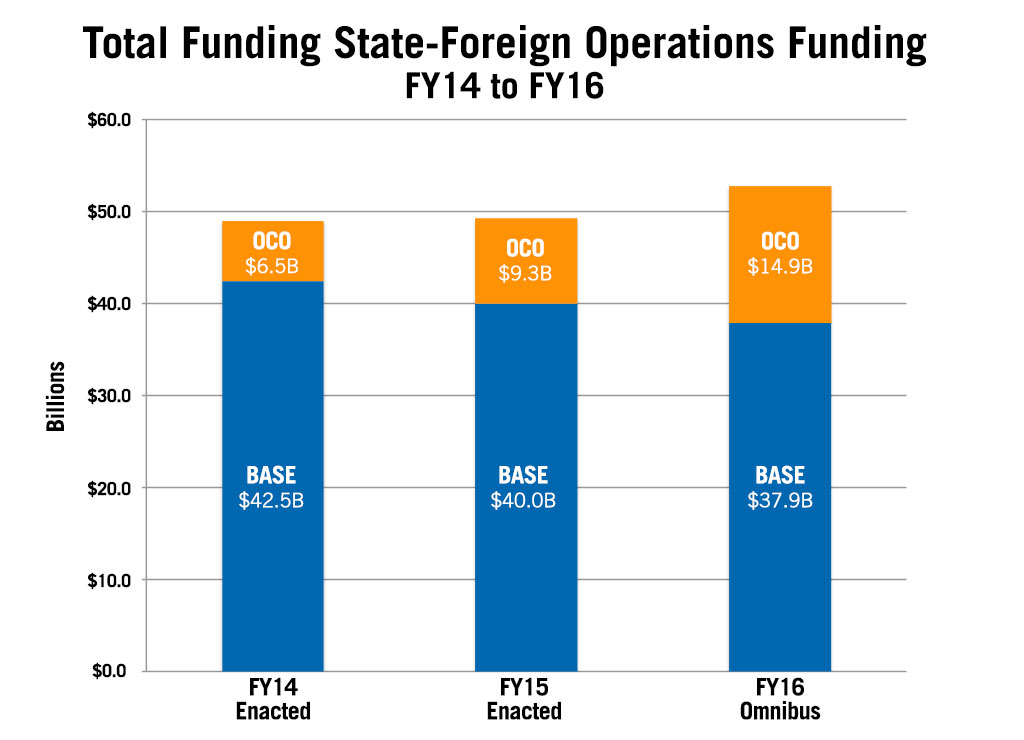
December 18, 2015
Today both the House and Senate approved the FY16 omnibus appropriations bill, which includes the State-Foreign Operations bill. The House passed the legislation 316-113 and the Senate passed it 65-33. Ninety-five House Republicans voted against the package largely because of the increase in discretionary spending and lack of certain controversial policy provisions, including a prohibition on Syrian refugees entering the United States until increased security measures are in place. The measure will be signed into law imminently by the President.
As we reported yesterday, while the overall FY16 funding level for development and diplomacy programs was significantly increased in the final spending package, the continued erosion of base State-Foreign Operations (SFOPS) funding has a concerning long-term impact. As the chart below shows, SFOPS (which funds approximately 96% of the International Affairs Budget) is the only annual appropriations bill in the FY16 omnibus that does not receive an increase in base funding; in fact, base funding is cut by nearly 6%. By contrast, overall base funding for other Non-Defense Discretionary programs is increased 6% in the omnibus and base funding for the Department of Defense is increased by 5%.
 |
As seen in the chart below, total funding for SFOPS (and the broader International Affairs Budget) does increase in FY16 by a significant level, but only because of growth in its Overseas Contingency Operations (OCO) budget. In a year when base funding for all other functions of the discretionary budget has increased, the challenge will be the long-term consequence of the cut to base SFOPS programs in the years ahead. Moving forward, Congress must work to address this dramatic shortfall in base funding that will be essential for America to remain a global leader.
 |
2. 2015 Legislative Wrap-Up
As Congress adjourns for the holiday recess, below is a look-back on the many pieces of legislation introduced related to International Affairs and where they stand in the legislative process.
This year Congress passed several bills related to development and trade:
Several other bills are still in the mix as the 114th Congress moves into its second session next year, including: